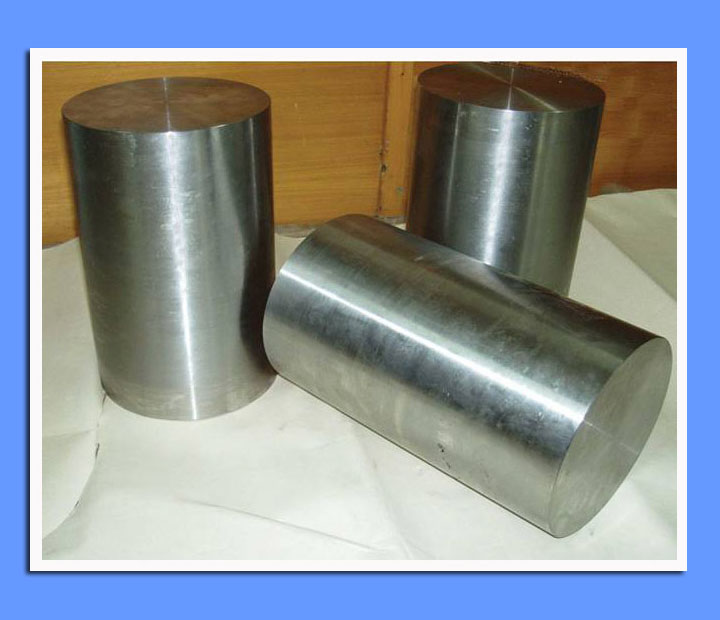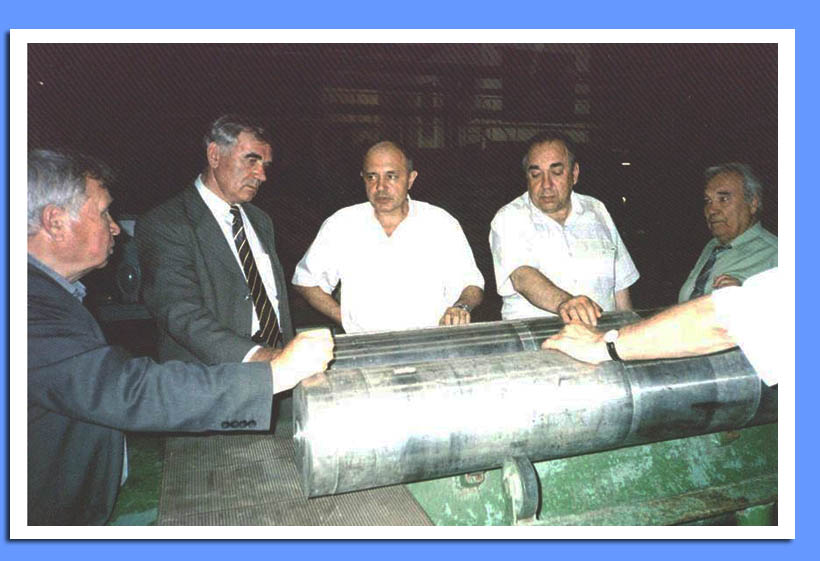Institute of Solid State Physics Materials and Technology

NSC KIPT of NAS of Ukraine / Institute of Solid State Physics Materials and Technology
DEPARTMENT OF PURE METALS, PHYSICS OF METALS AND TECHNOLOGY OF NEW MATERIALS
Processes of refining, production, study of characteristics, development of technology. Articles. Such metals as zirconium, hafnium, magnesium, niobium, tantalum, zinc, cadmium, gallium and others are regarded. In the case of need in development of technology of refining or production of new alloys on the base of pure metals range of titles will be broadened.
Refining. Physics of metals. Technologies. Articles. Beryllium belongs to nuclear materials. Therefore the attention is paid to the development of technologies of the use of beryllium as material for biological shielding. Articles of beryllium may be used as material for the first wall of fusion reactor. In the case of the need of high quantity of beryllium the attention will be paid to the development of Perjansk deposit of beryllium.
Superconductors
Development of physical processes of synthesis of superconductors Development of technologies of production. Investigation of electrical-physical properties of new superconducting materials.
Semiconductors
Carrying out of synthesis of semiconducting compounds Monocrystal growing. Fabrication of articles and production of detectors for registration of irradiation.
Achievements
On the base of the study of the behavior of dome impurities and their groups doring refining of metals by different physical methods high efficiency methods of metal refining were developed and realized in NSC KIPT:
-
Methods on the base of distillation processes, including the steam condensation over the column with temperature gradient in closed volume;
-
Melting and zone recrystallization in super high vacuum and controlled (active) media with the use of electron-beam heating;
-
Zone melting with electro transfer;
-
Different combinations of enumerated methods
The wide use of super high vacuum technique guarantees the reaching of highest degrees of cleaning and production of large quantity of metals in more pure form.


Metallurgy of zirconium
 Firstly in Ukraine ISSPMT had developed technology of production of ingots of
alloy Zr1Nb with oxygen content less 0,10 mass% on the base of calcium thermal
zirconium. For improvement of technological process of production of zirconium
of reactor purity in NSC KIPT systematic investigation of zirconium cleaning
from impurities was performed. Complex methods of formation of ultra-fine
grained and nanocrystalline structure in reactor materials (zirconium and its
alloys, niobium, tantalum) by intense plastic deformation (IPD) by upsetting,
extrusion, screw extrusion, low temperature quasi extrusion and drawing were
designed. By these methods firstly were obtained specimens of ultra-fine grained
materials including nanostructurized zirconium and alloy Zr-2,5% Nb with grain
size about 100 nm. It was revealed that ultra fine grained materials have a high
technological plasticity. It was also studied the influence of IPD on the
processes of grain fragmentation and function of grain distribution by size.
Firstly in Ukraine ISSPMT had developed technology of production of ingots of
alloy Zr1Nb with oxygen content less 0,10 mass% on the base of calcium thermal
zirconium. For improvement of technological process of production of zirconium
of reactor purity in NSC KIPT systematic investigation of zirconium cleaning
from impurities was performed. Complex methods of formation of ultra-fine
grained and nanocrystalline structure in reactor materials (zirconium and its
alloys, niobium, tantalum) by intense plastic deformation (IPD) by upsetting,
extrusion, screw extrusion, low temperature quasi extrusion and drawing were
designed. By these methods firstly were obtained specimens of ultra-fine grained
materials including nanostructurized zirconium and alloy Zr-2,5% Nb with grain
size about 100 nm. It was revealed that ultra fine grained materials have a high
technological plasticity. It was also studied the influence of IPD on the
processes of grain fragmentation and function of grain distribution by size.
Technology of production of magnesium thermal
zirconium for nuclear power was developed. Dioxide of zirconium was used as base
material; it was chlorinated, distilled and reduced by magnesium. Zirconium
sponge obtained by the method of VDP and ELP was remelted into alloy Zr1Nb.
Structure, chemical composition, microhardness and hardness of alloys Zr1Nv (M)
were studied. It is shown that structure of the alloy Zr1Nb (M) is the same as
structure of alloy E-110, chemical composition and mechanical characteristics of
alloy are analogous.

Similar method was used in the production of hafnium of nuclear purity.
Analysis of experimental data had allowed to present recommendations for improvement of the process of zirconium refining by the method EBM.
Favorable conditions of refining in combining with optimal technology allow reach the considerable increase of metallurgical purity of zirconium by EBM method. Generalized results of systematic investigation of the process of zirconium refining by EBM method in facility with combined pumping are characterized by following data: microhardness of iodide zirconium decreases (from 1200 to 800 MPa), considerable decrease of concentration of metallic and gaseous impurities in zirconium occurs. Indexes of purity of twofold refining of zirconium by EBM method are some higher. Presented data testify the efficiency of the method EBM for cleaning of zirconium from impurities.
|
The postal address of NSC KIPT:
|
|
